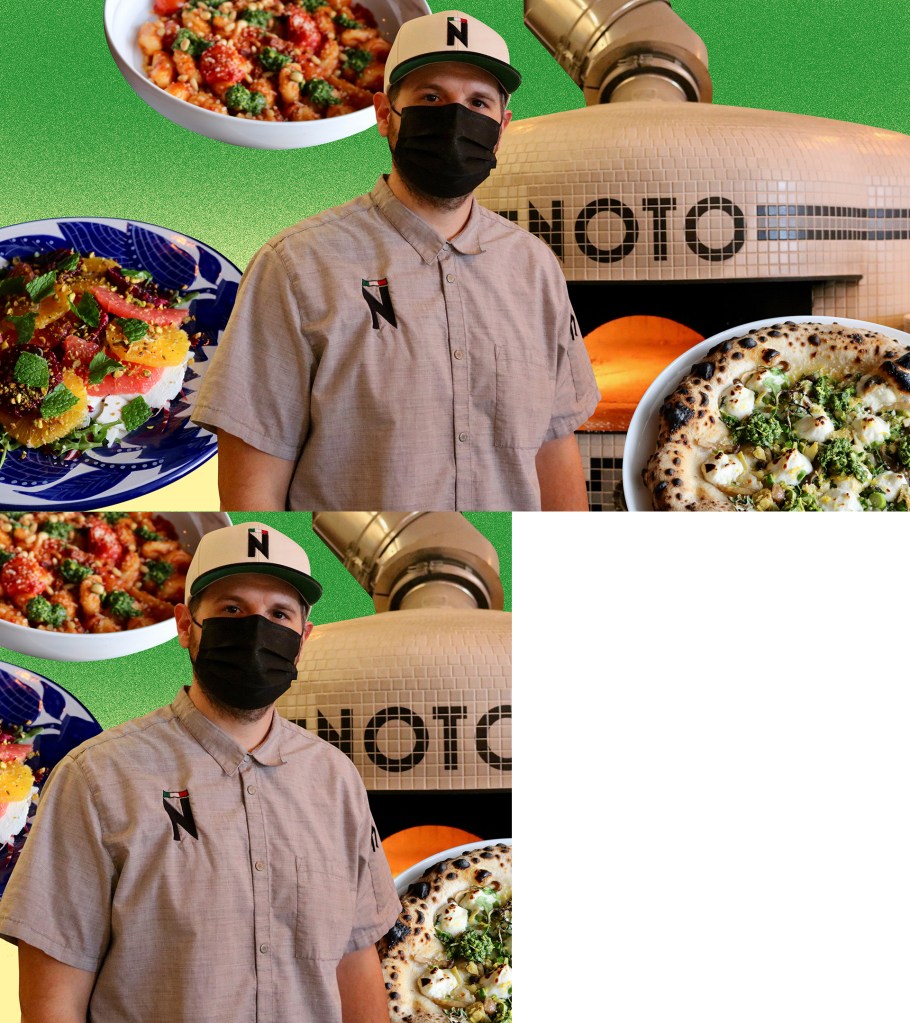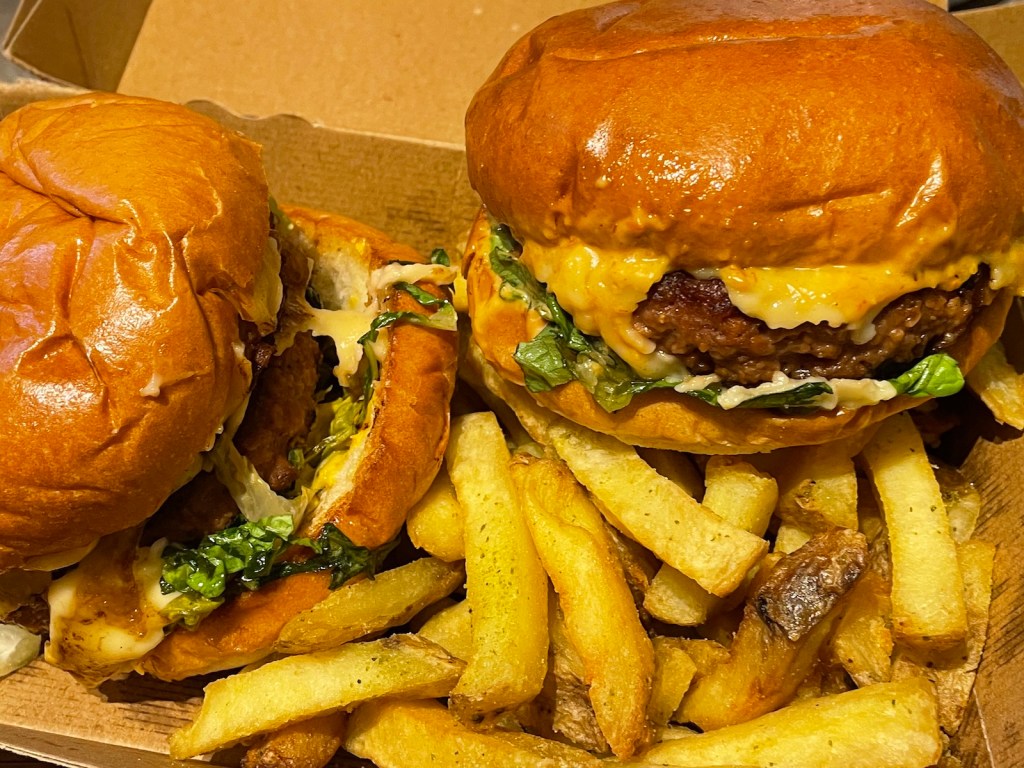“No to drugs, yes to pizza.”
That’s the slogan stamped on the pizza box at Ugi’s, Buenos Aires’s legendary pizza chain famous for its budget pizza and cult following. Pizzerias line just about every block of Argentina’s pizza-loving capital, a country where more than 60 percent of the population is of Italian descent, but no other pizza shop has made a name for itself quite like Ugi’s. Since it opened in 1980, Ugi’s Pizza became a hit for its central locations, bare-bones ambiance, and affordable pizzas.
Videos by VICE
But it wasn’t until the Ugi’s fan page appeared that the chain took the Argentine internet by storm with its unorthodox social media strategy. The Ugi’s Pizza Facebook page calls fans “morons” and “assholes,” promotes drug use, trolls hecklers, and makes fun of its own pizza. It engages in offensive comment battles, and has created a community with over 170,000 fans who keep coming back for more.

To explain Ugi’s furor on social media, it’s first important to understand the brand and its history. “Ugi’s plays a role in our popular culture; it’s part of Buenos Aires’s urban landscape,” says Luciano Banchero, a local radio personality and pizza expert. Ugi’s was the first chain to bring fast food pizza to the Argentinian masses, appealing to students and the working class. The original owner, Hugo Solís Sr. (“Ugi” is a nickname for Hugo), was inspired after living and working in the United States, and brought back to Argentina what was then a marvel concept: to choose one simple, low-cost item and serve it at an economical price in a no-frills setting.

“Ugi’s was everywhere. It was always open and very cheap,” Marcela Basch recalls. Basch was the only journalist who managed to get an exclusive interview with one of the elusive owners—Hugo Sergio Solís Jr. in 2009.
Today, there are more than 30 Ugi’s locations across Buenos Aires, plus related chains—like Don Hugo, Big Muzza, Peli’s, Soffly’s, and Hoogy’s—all rumored to be opened by the sons of the late Hugo Solís. Most serve the same two pizzas: muzza (cheese) and cebolla (onion) pizza, in large or quarter sizes. The large cheese pizza costs about AR$79.99 (about US$4.88), while the quarter pizza is priced at AR$19.99, (about US$1.22). In fact, Ugi’s prices became a gauge for the strength of the Argentine economy, and many referred to it as the most accurate index of inflation.

The legend of Ugi’s began long before the inflation index, viral memes, and the existence of Facebook. In 1998, Ugi’s had a major cameo as the go-to pizzeria in Pizza, Birra, y Faso, a popular Argentine film about two impoverished teen criminals, and from there, its anti-establishment misfit persona was born.
“This is when they really let their bizarre flag fly, a reflection of what we see today on social media. Ugi’s was never ashamed to be considered cheap; in fact, they were proud of it and absolutely unapologetic,” Banchero points out. “Ugi’s could never compare with the city’s great pizzerias in term of quality and tradition, so it went down it’s own path.” Ugi’s attracted a whole generational subculture, vocal in their opposition to snobbery, and communicated with them through self deprecation, pop culture references, shocking language and offensive jokes.
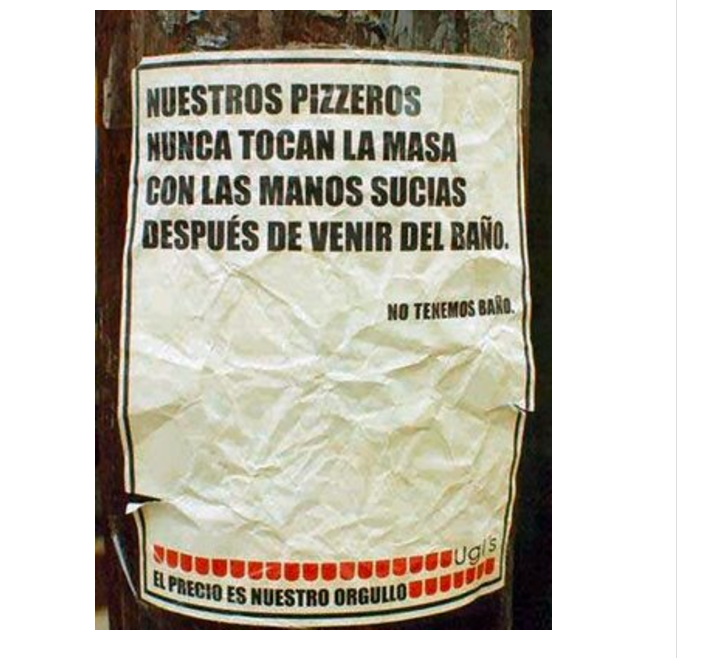
No one has been able to clarify how Ugi’s “ No to drugs, yes to pizza” motto began, but the slogan took off and transformed into its own beast.
“Ugi’s tone, their jokes, this isn’t something new,” journalist and admitted Ugi’s aficionado Nicolás Lantos tells me. “This similar tone like on the pizza box has been taken to the extreme on Facebook, bringing the same ideology as always, but this time using basic tools like Photoshop or Paint.” Because of its generational Argentine humor, which especially captured millennials, Lantos believes that the page alone gained fans who might not even consume Ugi’s pizza, but enter to participate in its antics.
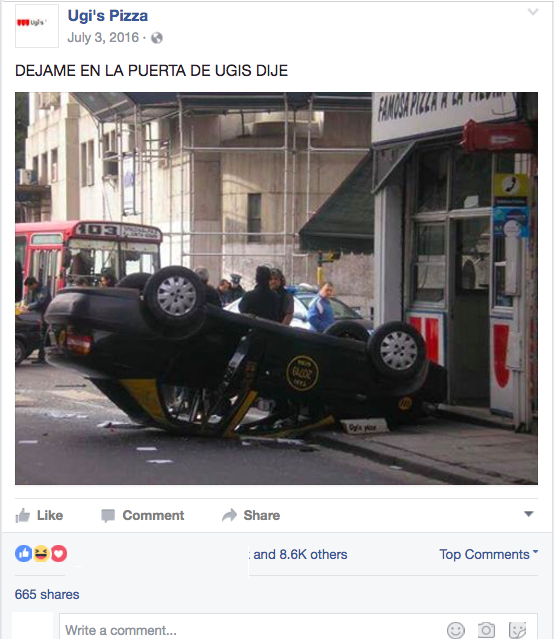
One ongoing gag is an open acknowledgement that many Ugi’s locations aren’t particularly clean; pigeons so often infiltrate the stores that they’ve named the symbolic Ugi’s pigeon “Miguel” and include him in posts periodicially:
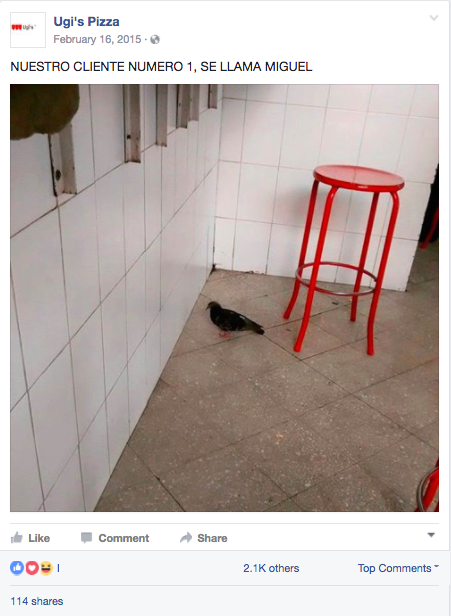
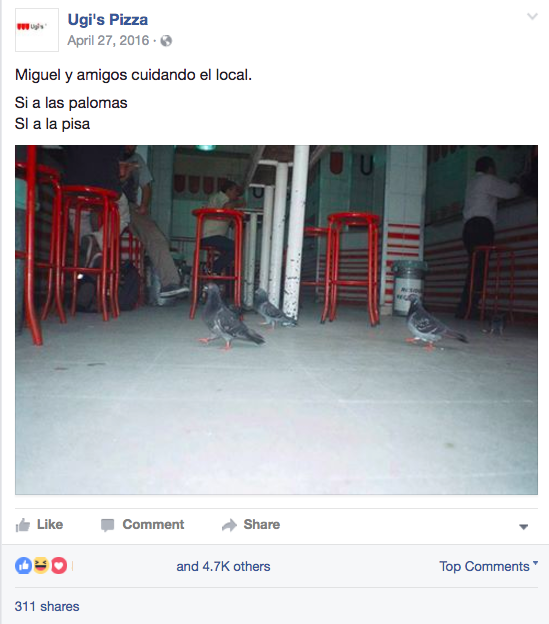

Some of Ugi’s Internet virality can be attributed to Argentina’s recent food renaissance, a time when many restaurants are attempting to transform traditional, simple comfort foods into something that appeals to “foodie” sensibilities. Food “influencers” are flooding the scene, and crowd-sourced reviewers are beginning to gain clout.
READ MORE: Meet the Brazilian Man Who’s Putting Birthday Cakes and 6-Packs on Pizza
“The Ugi’s fanpage is an unfiltered, genuine, and ingenious space in which the traditional roles of consumer and brand communication are reversed,” explains Tomás Balmaceda, a writer who specializes in pop culture. “Generally, we see angry consumers who complain [to] a restaurant about bad service, and the restaurant has to respond in a cordial way. But here, however, the company is the one who responds with fury, and in turn, the consumer rebuttals with the same currency.”

MUNCHIES reached out to Ugi’s for comment on the matter, but neither management nor the Ugi’s Pizza Facebook page responded to multiple messages and phone calls.
The Ugi’s fan page opened the vulgar floodgates, welcoming a community of trolls and haters who regularly engaged in misogynistic, politically incorrect, and homophobic exchanges, adopting a persona of the “yo mama” joke-teller. Despite its machista attitude, many Argentines are not offended. “I don’t think these people are malicious,” Lantos remarks. “It’s just a certain sense of humor from a younger generation who want to show they aren’t careta (snobby, or a fake).” Banchero agrees, citing that Ugi’s fans are in on the joke, and together work under the same code of understanding.
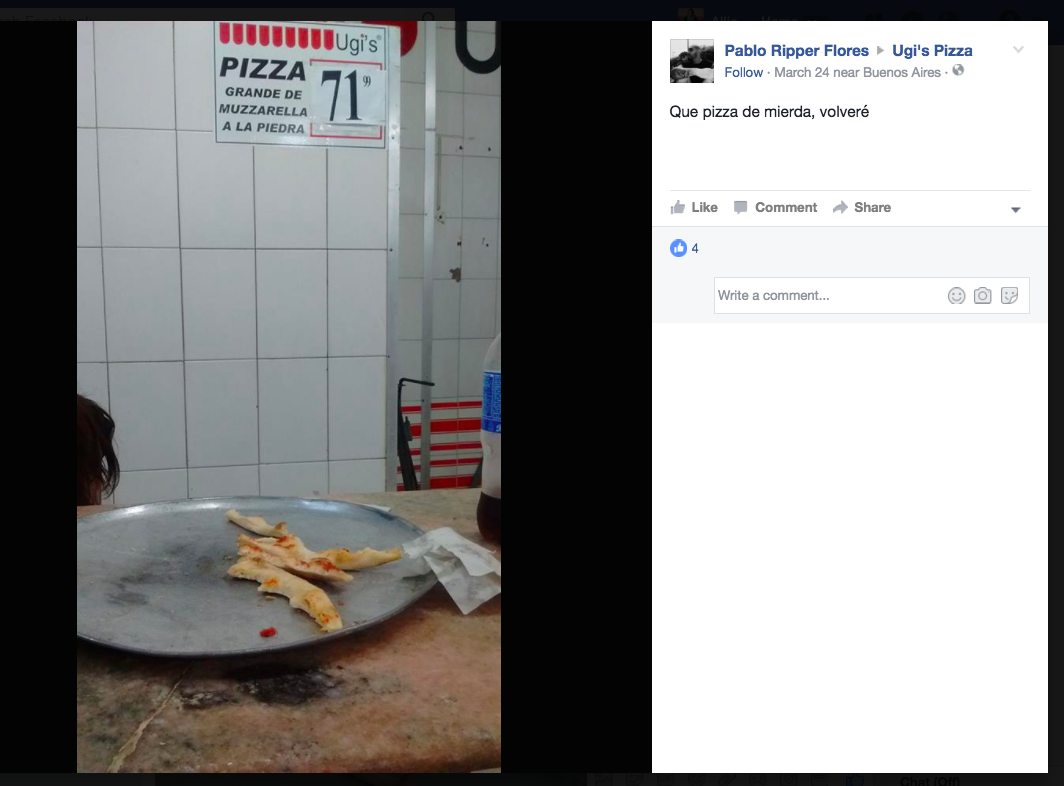
“Ugi’s appeals to a certain type of dark and absurd Argentine humor. If another pizzeria acted the same way, it would create chaos. But here, Ugi’s is speaking the same language as their consumers.”
This post first appeared on MUNCHIES in June 2017.



